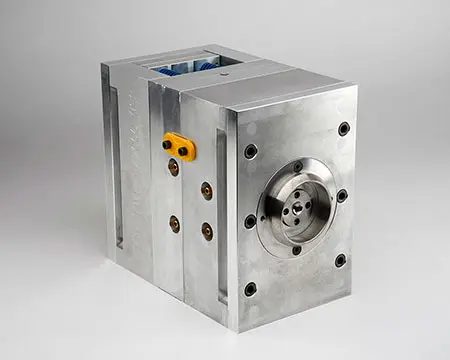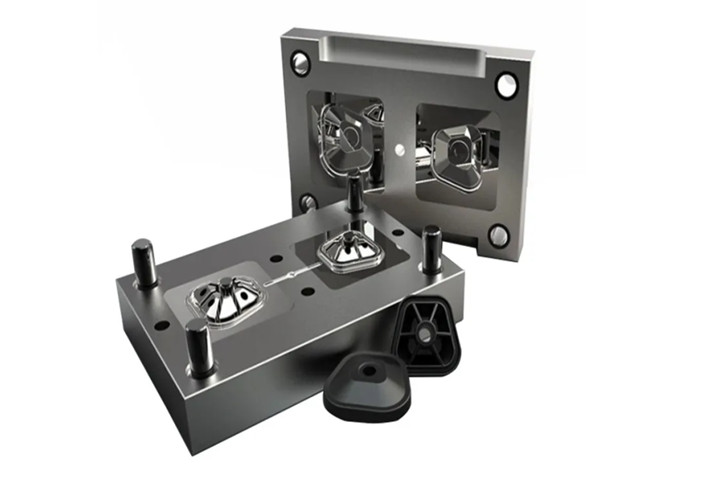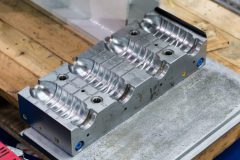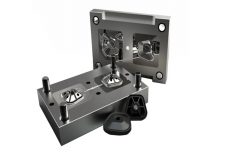Mold design is an integral part of the manufacturing system, particularly in industries that depend on plastic or metallic elements. Getting the design proper from the beginning can save money and time. That’s why asking the right questions while operating with your molder is essential. Below, we’ve compiled 6 key questions you must ask throughout the Injection molding process to ensure the entirety runs efficiently.
What Materials Will You Use for the Mold?
The form of fabric used for the mildew influences the final product’s pleasant and sturdiness. Ask your molder what substances they plan to apply and why they chose them. Mold substances can vary from metallic to aluminum, with everyone having blessings.

For example:
Steel molds are robust and last longer. They are first-class for high-volume production.
Aluminum molds are cheaper and quicker to produce, making them best for smaller runs.
Understanding the material choices will help you decide if they fit your manufacturing dreams. Steel may be the better alternative if you need extraordinary, long-lasting parts. However, for short-term initiatives or prototypes, aluminum might be extra expensive.
How Will the Mold Design Affect Production Speed?
Speed is critical in custom mold manufacturing, mainly when performing big tasks. The design of the mildew will significantly impact the speed at which your precision mold components can be produced.
Ask your molder how the design will impact cycle times, which is the time it takes to make one part. The mold has to be designed to:
- Allow fast cooling (for plastic molds) to lessen downtime among manufacturing cycles.
- Avoid complicated shapes that take longer to produce.
- Ensure that parts may be without problems and eliminated from the mildew without causing harm.
By discussing those elements, you’ll ensure that the mold design supports brief and efficient manufacturing, saving time and reducing charges.
Can the Mold Design Be Modified in the Future?
Products frequently alternate over time. New capabilities can be introduced, or designs can be updated. It is vital to recognize whether the mildew may be changed later if desired.
Some molds are more straightforward to regulate than others. For instance:
- Modular molds can be changed or updated without needing an entire rebuild.
- Fixed molds may be more challenging to alternate and require creating a new mold from scratch.
Ask your molder if the layout allows for future changes. This flexibility will save you money in the long run by reducing the cost of constructing a brand-new mold if adjustments are needed.
What Is the Expected Mold Lifespan?
Every mold has a restricted lifespan, and it’s crucial to realize how long it will die before it desires to be replaced. The lifespan of the mold depends on the elements together:
- The form of material used to make the mildew.
- The range of elements being produced (excessive-extent production wears out molds faster).
- The complexity of the mold layout.
A steel mold may last hundreds of heaps of production cycles, while aluminum mildew can also be the most effective for a few thousand. By asking this question, you can plan for future renovation or alternative expenses and ensure your production stays on course.
How Will You Ensure Mold Quality?
A poorly designed mildew can cause defects in your final product, costing you money and time. It’s essential to invite your molder for their high-quality management technique.
Here are some ways they could ensure mold is pleasant:
- Prototype trying out: They may also create a prototype to test the mold’s performance before manufacturing begins.
- Precision measurements: Your molder must use particular gear and methods to ensure the mold’s accuracy.
- Material checking out: Testing the materials for power and sturdiness ensures that the mold lasts as long as needed.
With knowledge of their first-class control techniques, you can be confident that the mildew will produce top-notch elements.

How Do You Handle Mold Maintenance Techniques and Repair?
Mold upkeep is fundamental to ensuring it keeps to paintings efficaciously over time. Even the great-designed mold can break down without proper protection, leading to high-priced upkeep. Ask your molder about their preservation timetable and repair manner.
A suitable molder will:
- Regularly accessible and look at the mold.
- Perform minor upkeep when needed to prevent more significant troubles later.
- Offer a plan for mold storage to shield it from harm while it is no longer in use.
Knowing that your molder has a stable upkeep plan will give you peace of mind and help avoid surprising manufacturing delays.
The Site you must visit for the pleasant Blow Molding
Where mold engineering solutions are executed will depend on your precise requirements. With custom blow molding, a massive variety of shapes may be created. Injecting blow molding works nicely for small bottles. Extrusion molding produces sizeable instances. It cuts the plastic to make bottles or cups. Blow shaping by gadget plastic mold tooling is rapid and easy. EBM blow molding is the approach used to create hollow gadgets.
Bottles that are stretch blow molding are robust. For cocktails, that is useful. There are several forms of molding used to cremold plasticate shapes. Ex Mould Co., Ltd. It is an enterprise you need to paint with. They have ideal gear and information. They continually offer top-notch goods. Their internet site is easy to apply. Kindly forestall using and explore the distance.
FAQs
How often must molds be replaced?
It depends on the fabric and production quantity. Steel molds close longer than aluminum molds and may produce thousands of parts before requiring replacement.
What can cause mold damage?
Mold damage can occur due to improper renovation, excessive use, or design flaws that stress mold. Regular inspections help prevent these issues.
Can I trade the mildew design after production starts?
It’s feasible; however, changes depend on the form of mildew. Modular molds allow for more straightforward adjustments, while fixed molds may require a whole rebuild.
Final Words
Those six questions will help ensure your mold production cycle meets your needs. They will even prevent costly mistakes and delays down the road. Always work carefully with your molder and maintain an open line of verbal exchange throughout the layout system. The more approximately the mildew layout, the better prepared you’ll be to control manufacturing effectively and ensure super effects.


